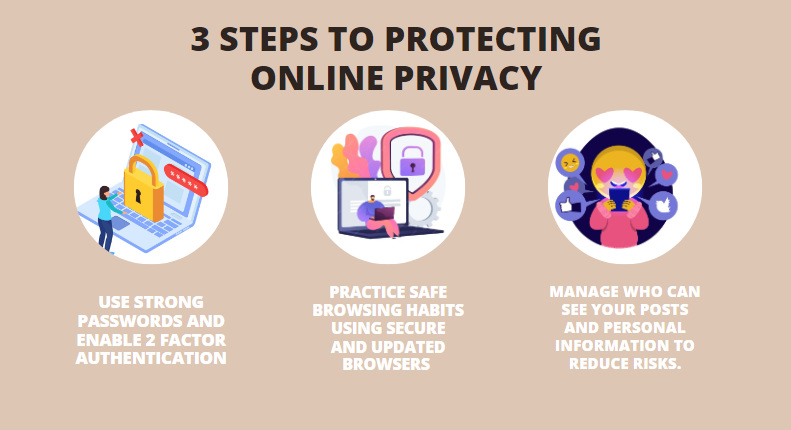8 Effective Ways to Protect Your Family's Privacy Online
- Arnim Sharma
- Mar 11, 2024
- 3 min read
Updated: Apr 18, 2024
Table of Contents:
1. Introduction
2. Use Strong, Unique Passwords
3. Enable Two-Factor Authentication
4. Keep Your Software Updated
5. Use a Virtual Private Network (VPN)
6. Be Cautious with Social Media
7. Use Secure Wi-Fi Connections
8. Be Wary of Phishing Scams
9. Educate Your Family
10. Conclusion
11. FAQs
Introduction
In today's digital age, protecting your family's privacy online is more important than ever. With the increasing use of the internet for everything from shopping to socializing, it's crucial to take steps to safeguard your personal information. Here are eight effective ways to protect your family's privacy online:
1. Use Strong, Unique Passwords
Using strong, unique passwords for each of your online accounts is one of the most important steps you can take to protect your family's privacy online. Avoid using easily guessable passwords such as "123456" or "password." Instead, use a combination of letters, numbers, and special characters to create a strong password.
2. Enable Two-Factor Authentication
Two-factor authentication adds an extra layer of security to your online accounts by requiring you to provide two forms of identification before gaining access. This can help prevent unauthorized access to your accounts, even if your password is compromised.
3. Keep Your Software Updated
Keeping your software, including your operating system and applications, up to date is essential for protecting your family's privacy online. Updates often contain security patches that help protect against the latest threats.
4. Use a Virtual Private Network (VPN)
A VPN encrypts your internet connection, making it more difficult for hackers to intercept your data. It also masks your IP address, making it harder for websites to track your online activities.
5. Be Cautious with Social Media
Be mindful of the information you share on social media platforms. Avoid posting sensitive information such as your address, phone number, or details about your daily routine. Adjust your privacy settings to limit who can see your posts.
6. Use Secure Wi-Fi Connections
When connecting to the internet from home or on the go, use a secure Wi-Fi connection. Avoid using public Wi-Fi networks, as they can be more vulnerable to hackers.
7. Be Wary of Phishing Scams
Phishing scams are attempts by hackers to trick you into providing sensitive information, such as your login credentials or financial information. Be wary of emails, text messages, or phone calls that ask for this information and verify the source before responding.
8. Educate Your Family
Finally, educate your family about the importance of online privacy and the steps they can take to protect themselves. Encourage open communication about any concerns or issues that arise.
By following these eight effective ways to protect your family's privacy online, you can help ensure that your personal information remains safe and secure.
Conclusion
In conclusion, protecting your family's privacy online is paramount in today's digital age. By following the eight effective ways outlined in this article, you can help ensure that your personal information remains safe and secure.
Remember to use strong, unique passwords, enable two-factor authentication, keep your software updated, use a VPN, be cautious with social media, use secure Wi-Fi connections, be wary of phishing scams, and educate your family about online privacy. By taking these steps, you can enjoy a safer and more secure online experience.
FAQs
Q: Why is online privacy important?
A: Online privacy is important because it helps protect your personal information from being accessed by unauthorized individuals or entities. This includes sensitive information such as your financial details, personal photos, and communication history.
Q: How can I protect my family's privacy online?
A: You can protect your family's privacy online by using strong, unique passwords, enabling two-factor authentication, keeping your software updated, using a VPN, being cautious with social media, using secure Wi-Fi connections, being wary of phishing scams, and educating your family about online privacy.
Q: What is two-factor authentication?
A: Two-factor authentication is a security measure that requires you to provide two forms of identification before gaining access to an online account. This typically involves entering your password and then confirming your identity using a second factor, such as a code sent to your phone.










Comments